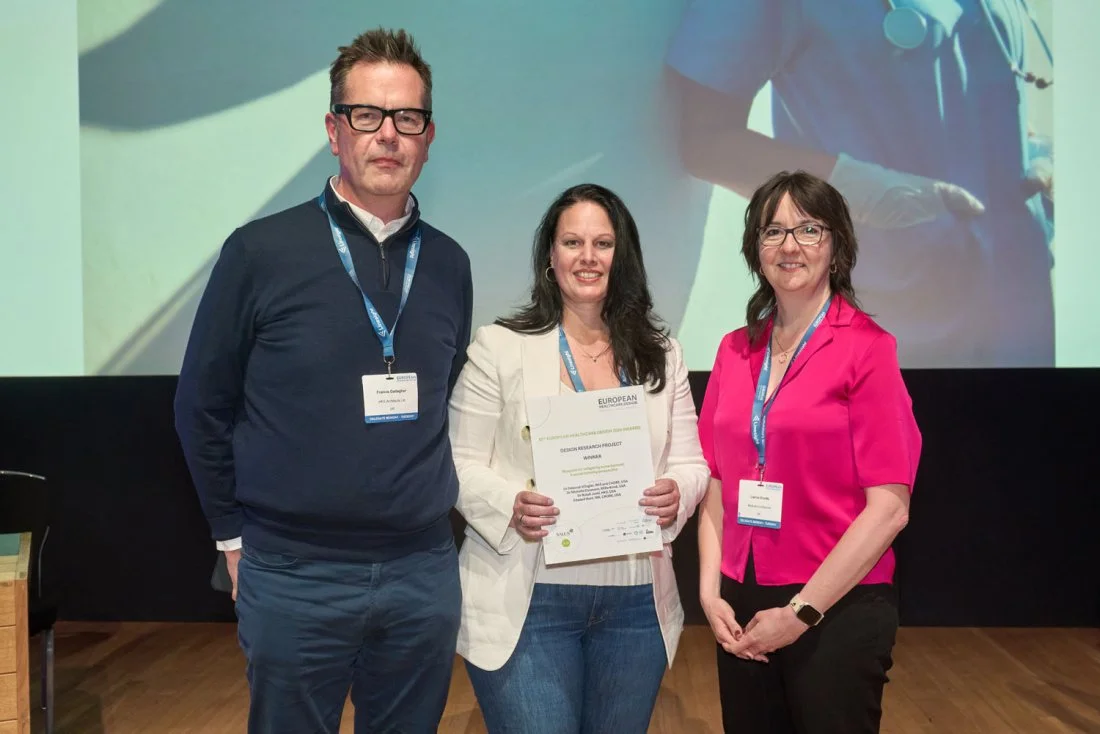As I come home from my first LeadingAge conference—I can’t emphasize enough how amazed I was with the sheer sense of purpose and joy of all participants and attendees. It began with the vibe: the keynote speaker featured musicians, art created by residents was ubiquitous, and the event enriched the setting with vibrant colors that accompanied even richer conversations.
I’m fortunate to have watched Roger Meyers from Presby Villages of Michigan receive the Award of Honor. At CADRE, we’ve worked closely with the Presbyterian Village of Michigan (PVM), so we know that the award is an affirmation of meaningful change in Senior Living.
I’m honored to have presented with Dr. Maggie Calkins, a fellow CADRE Board Member, and researcher from IDEAS, Inc., and Katrina Summersett from PVM. Together, we represented our grant-funded work on Socially Resilient Affordable Housing. It was a joy to share our coalition-based work with a driven and discerning audience. Here are a few questions we heard:
1. How do we socialize our work and create better collaborations with HUD?
2. How do we address the bias that designing for social connection and basic human dignity is a premium cost and not an investment?
3. How do we create larger collaborations that continue this work?
4. How do we leverage functional spaces—like laundry rooms—as places for social connection? (This was a key insight from our work).
All day, we met with incredible thought leaders—designers, researchers, and operators from firms big and small. The affordable housing meet and greet was an avenue to see people connect and break bread together while tackling one of the most salient issues of our time.
As we continue this work, I’m full of gratitude for our teammates and partners, including new collaborators and future partners. One of the best things about coalition-based work is the incredible people you meet along the way.
Upali Nanda, 11.13.23







